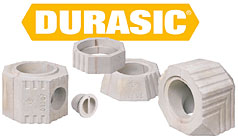MASONRY HEATER HEALTH BENEFITS AND SAFETY
According to Health and Safety Executive
"Thermal comfort is defined in British Standard BS EN ISO 7730 as: ‘that condition of mind which expresses satisfaction with the thermal environment. So the term ‘thermal comfort’ describes a person’s psychological state of mind and is usually referred to in terms of whether someone is feeling too hot or too cold."
Extensive research has been conducted to understand thermal comfort since 1990s and it was shown that radiant heat produced by masonry heaters creates ambient and healthy living environment.
"Finnish fireplaces produce gentle, long term radiant heat that directly affects the indoor environment in a profound way." ( Albert Barden & Heikki Hyytiainen, Finnish Fireplaces - Heart of the Home)
Homes heated with a radiant masonry heater are relatively quiet and have cosy warmth which you may only notice when you step outside. Because the air is not being directly heated by the fireplace, as it is in a forced air system, it is cooler and seems fresher, a welcome change to allergy sufferers. Radiant heat produced by masonry heaters has also been used for pain relief and therapeutic purposes.
By contrast, metal stoves and forced-air furnaces tend to "fry" the dust in household air, due to their higher surface and burner temperatures, causing an unpleasant smell and dry air. European authorities are now studying the adverse biological effects of "fried" household dust.
"It should also be noted that the whole concept of airtight house construction and its accompanying problems of indoor pollution is healthily challenged by masonry wood heating. With masonry heaters we are not trying to heat the room air by forced convection from some remote, dusty, central heating system. We are instead heating solid materials and people by direct radiation. Such systems create warm, solid surfaces and fresh, clean air." ( Albert Barden & Heikki Hyytiainen, Finnish Fireplaces - Heart of the Home)
Since a masonry heater does not superheat the air, currents and drafts caused by the hot air/cool air cycle are reduced, and with them, the "indoor weather". In addition, there is no powerful fan pushing the air around, contributing to this moving air and "wind-chill". Another subtle benefit of this type of heating is the stimulating effect of slight variations in heating from room to room. (Slight is the important word - large differences in heating from room to room are a little too stimulating for most people.)
"The user of a fireplace comes to understand that fire, like the sun, is a life-sustaining and renewing force that the real purpose of a fireplace is to renew the energy of those who gather around it." (Ref. Albert Barden & Heikki Hyytiainen, Finnish Fireplaces - Heart of the Home)
A little known wood-heating phenomenon concerns the balance of positive and negative ions in a room and how it affects our bodies. Ions are naturally occurring charged particles in the air, and are usually not a concern unless the natural balance is upset. A room with insufficient negative ions can cause adverse biological effects on its occupants such as sleepiness, headaches and lethargy. Metal stoves give off positive ions to a room, which upsets this proper balance. Masonry stoves, because of their large radiating surfaces and low external temperatures, do not cause this problem.
SAFETY
There is no safer wood-burning heater than a properly constructed masonry stove. It is only fired for a few hours a day while you can watch it, and never at night when you sleep.
After the fire is out, there is no part of the heater's exterior that is unsafe to touch, with surface temperatures in the 100 to 180 degrees F. (40 to 80 deg. C) range. In fact, it is quite safe and comfortable to sit with your back to the masonry facade to soak up warmth. Many old European stoves had a sleeping platform built onto the top of the heater and some people today incorporate a heated sitting nook or bench into their designs.
Chimney fires are a major concern in the UK, causing house fires which result in needless deaths and destroyed homes. They are a serious problem with metal stoves and wood furnaces, due to typically low operating temperatures and resulting low combustion efficiency. This allows unburned gases to form tars and compounds in the smoke, which then condense in the chimney system, forming creosote, the fuel for a chimney fire.
This hazard is virtually eliminated with a masonry stove, mainly due to the heat storage ability inherent in their designs. The masonry mass and large heat storage allows them to be operated comfortably at high temperatures, which creates consistently high combustion efficiency. These two features, which are unique to masonry stoves, ensure that all combustible gases are burned in the heater, producing heat, not creosote.
We wouldn't suggest that a masonry heater is good for you unless there was a lot of evidence. Examples of its healthy effects can be found everywhere from ancient civilizations to modern medicine. Radiant heat has been used to stabilize blood pressure and cholesterol levels in the "tepidariums" of ancient Rome as well as in the infrared saunas of modern Europe.
The ancient Chinese used glowing "moxa sticks" together with acupuncture. Radiant heat is used today to treat scar tissue, relieve sore muscles and joints and to counter reduced vitality and resistance at the end of winter.
Radiant heat also seems to be effective in helping your body ward off a variety of infectious diseases, including the flu. 2000 years ago the physician Parmenides said, "Let me induce fever and I will cure every disease." That may have been exaggerating, but fevers do help the body fight infections. Regular radiant heat produces a similar effect. When winter sets in and the nights get longer, we get less and less radiant heat from the sun. Many people get listless or even depressed. That's because a lack of radiant heat can result in reduced vitality and resistance, although that might also be caused by lack of light. Radiant heat in your home can provide relief from chronic fatigue by stimulating blood circulation, increasing your metabolism, and helping the body eliminate toxins more efficiently.
As mentioned earlier, cold radiation leads to a narrowing of the blood vessels, and radiant heat helps widen them. Wider blood vessels means the skin ages more slowly, blood pressure is lower, there are fewer varicose veins and a lower incidence of heart and circulatory diseases. In fact, infrared saunas have been found more effective in reducing blood pressure than medications.
Masonry heater can provide relief for people with respiratory problems. The cooler air produced by radiant heat allows us to breathe more deeply and more calmly. With forced-air heating, air is constantly circulated, along with dust and allergens. Dust and allergens, which have come into contact with hot metal surfaces, are more irritating to people who already have problems breathing.
Forced-air heating also dries out the air, by causing condensation on cold floors and walls. The condensation encourages the proliferation of household mites and fungus.
But with a masonry fireplace the air isn't forced out. Dust and allergens do not circulate that much. And because the masonry fireplaces' radiant heat is stored in walls, condensation doesn't occur under normal conditions. The air is easy to breathe and air humidity is not disturbed.
The air in your house must be renewed every one or two hours. And since forced air heating systems store heat in the air, you basically reheat your house over and over.
With masonry fireplace more heat is stored in the walls, so healthy ventilation means less heat loss and more efficient heating.
It's clear that radiant heat has a positive effect on your health. It promotes better circulation, more efficient respiration, better metabolism and a stronger immune system. It remains unclear, however, how strong these positive effects may be. So while it's a healthy idea to have a masonry heater in your home, never use it instead of advice or medications prescribed by your doctor.
We are confident that you'll feel the difference. We know that history and research support our claims, and we will continue to support research on the effects of radiant heat.










